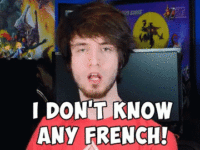In the realm of viral internet culture, few phrases resonate with as much palpable intrigue as “Y’all Wanna See A Dead Body.” This iconic quote, rooted in a singular moment, rapidly evolved into a multifaceted meme, captivating audiences and leaving them pondering its deeper implications. Here, we explore the nuances and facets of this fascinating cultural phenomenon through a curated selection of imagery and quotes that encapsulate its allure.
“If you’re not careful, you might just find yourself on the other side of the looking glass.”

First and foremost, the phrase beckons a confrontation with mortality itself. It tantalizes the viewer, evoking a sense of morbid curiosity. The allure is undeniable: a macabre invitation that challenges societal taboos about death and the unthinkable.
“In the chasm of despair, humor sometimes lights the way.”
![[100+] Letter Y Pictures | Wallpapers.com](https://failgif.com/wp-content/uploads/2025/07/tall-letter-y-64ex0nqyjtf4ifs2.jpg)
Moreover, humor intertwines with the grotesque. The juxtaposition between laughter and death stirs a kaleidoscope of emotions. It prompts a reevaluation of our perspectives—should we laugh at death, hide from it, or confront it? In essence, it becomes a philosophical question shrouded in comedic overtures.
“Curiosity killed the cat, but satisfaction brought it back.”

As we delve deeper, the phenomenon inspires profound reflection. “Y’all Wanna See A Dead Body” is not merely a sensational assertion; it is an invitation—one that dramatizes the human condition, compelling us to face our own existential dilemmas with an unflinching gaze.
“To understand life, one must accept the specter of death beside it.”

In an age where digital storytelling often supersedes lived experiences, this phrase serves as an anchor, rooting us in a reality that transcends the superficial veneer of social media. It encourages authenticity in our reactions to life’s darker themes.
“An invitation to the macabre can be the spark for a transformative journey.”

Ultimately, the enigmatic allure of this phrase reflects a deeper societal curiosity. By daring to ask, “Y’all Wanna See A Dead Body?” we unravel layers of meaning—exposing not only our fascination with death but also our innate desire for connection, understanding, and perhaps a grim sort of solace in shared experiences.







